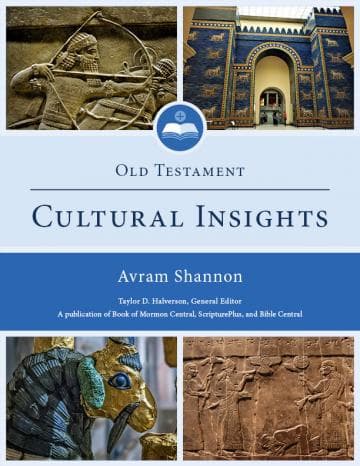Book
71 Chapters

The name Baal comes from a Semitic word that means “lord” or “master.” In the Old Testament, Baal is usually used as a divine name for Hadad, the Canaanite storm god (you can see the form Hadad in names like Ben-Hadad, “Son of Hadad,” the Aramean king who invaded the Northern Kingdom of Israel; see 1 Kings 15:18–20). We know something about how the Canaanites understood the character of Baal/Hadad because of documents found at ancient Ugarit, located on the coast of modern-day Syria. These clay tablets tell a mythological cycle about Baal and his victory over his enemies.
Baal and Jehovah shared several characteristics, and these similarities often caused the ancient Israelites to combine or syncretize the worship of Baal and Jehovah. Hosea even seems to suggest that during some periods it was appropriate to call Jehovah by the title Baal (Hosea 2:16–17). This is likely why Saul, who despite his other difficulties was staunch in his worship of Jehovah alone, had a son with a name that derives from Baal (see 1 Chronicles 8:33). This potential for association between Jehovah and Baal led to the name Baal becoming the standard word for gods worshiped besides or in place of Jehovah.
The fact that Baal was the storm god helps explain Elijah’s actions during the reign of Ahab. By sealing the heavens so that it would not rain was a direct attack on Baal’s divine portfolio. Likewise, the contest between Elijah and the priests of Baal (and by extension between Jehovah and Baal) was a contest to see which god would send down lightning. Jehovah’s victory over Baal was essentially an example of beating Baal at his own game.
Numbers 22:41
Judges 2:11–13
Judges 6:28–32
Judges 10:6
1 Samuel 7:4
1 Samuel 12:10
1 Kings 16:31–32
1 Kings 18
1 Kings 19:18
1 Kings 22:53
2 Kings 3:2
2 Kings 10:18–28
2 Kings 21:3
Jeremiah 2:23
Jeremiah 9:14
Jeremiah 11:17
Jeremiah 12:16
Hosea 2:8–17
Zephaniah 1:4
Book
71 Chapters
Items in the BMC Archive are made publicly available for non-commercial, private use. Inclusion within the BMC Archive does not imply endorsement. Items do not represent the official views of The Church of Jesus Christ of Latter-day Saints or of Book of Mormon Central.